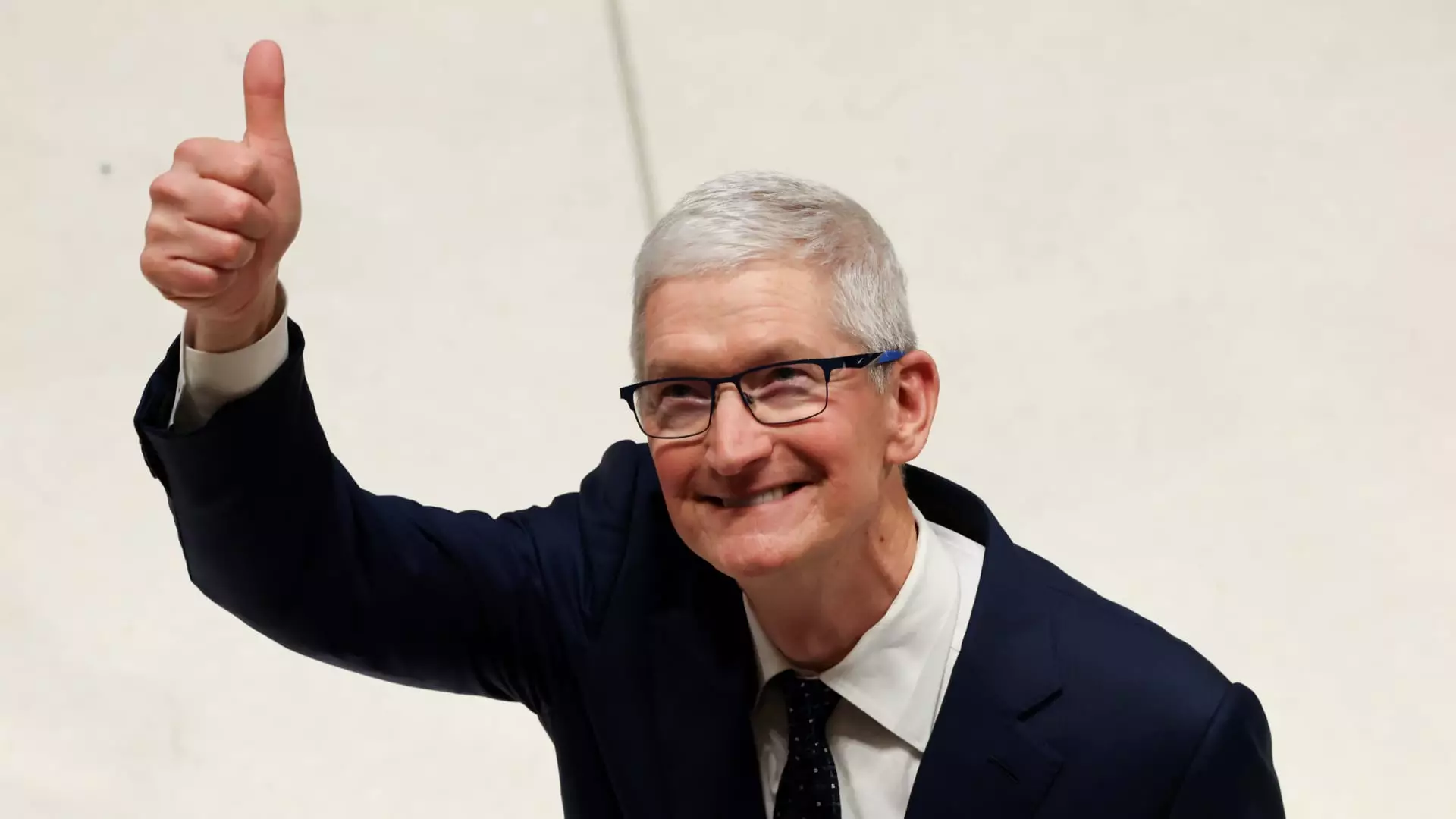In a landmark ruling that underscores the tension between individual privacy and national security, Apple has successfully resisted the U.K. government’s attempts to keep the details of a contentious appeal hidden from the public eye. The case centers around an appeal initiated by Apple against a directive requiring them to implement a backdoor into their iPhone data security. This backdoor would allow the government to access encrypted user data, a demand that raises serious concerns regarding civil liberties and data protection.
The investigators leading this case, Judges Rabinder Singh and Jeremy Johnson, provided a firm rebuttal to the government’s motion for secrecy, citing that adopting such a measure would severely compromise the principle of open justice. Their ruling on this matter reflects both legal prudence and an ethical stance that prioritizes transparency, a crucial aspect of democratic governance. Secrecy should not cloak government aspirations, especially when they could lead to profound implications for user privacy.
Apple’s Stance: A Commitment to User Privacy
Apple has historically positioned itself as a champion of user privacy, offering robust encryption through its Advanced Data Protection (ADP) system. This system employs end-to-end encryption for a majority of iCloud data, making it exceedingly difficult for unauthorized parties—be they criminals or government officials—to access user information. Faced with the U.K. government’s insistence that weakened encryption is an essential tool in combating crime, Apple resolutely pushed back, arguing that such measures would just as easily expose users to risks like data breaches and cyber theft.
The U.K.’s Investigatory Powers Act of 2016 grants governmental bodies the authority to compel tech corporations into creating backdoors—a move that many in the tech community view as a dangerous precedent. Decisions made about encryption and data security directly impact millions of users, and compromising this principle for the sake of alleged security benefits is a contentious proposition. Apple’s withdrawal of its ADP feature in February 2023 for U.K. customers is a clear signal of its unwillingness to comply with mandates that could jeopardize user data integrity.
The Role of Transparency in National Security Debates
The ruling’s emphasis on transparency highlights a significant philosophical approach to governance: the belief that public understanding and awareness should not be sacrificed at the altar of national security. The judges’ arguments serve as a potent reminder that while governments have a duty to protect their citizens, this obligation should not come at the cost of individual rights. There is an inherent difficulty in balancing these competing interests, yet transparency must remain a cornerstone of governmental action, especially when it concerns reports or hearings that involve controversial policies like encryption backdoors.
Underpinning this dispute is the larger debate regarding how technology intersects with society. Data protection is not merely a technological concern; it is a social issue. Citizens are increasingly aware of the importance of safeguarding their personal information amid rising cyber threats, and they expect their governments to uphold privacy standards rather than erode them through reckless policy mandates.
The Future of Encryption: Navigating the Crossroads
As this dispute unfolds, the ramifications extend far beyond Apple and the U.K. government. Other countries, including the U.S. and various EU nations, are watching closely, as they too face the pressing dilemma of how to handle encryption technology. The reaction from the tech community will be critical; companies are increasingly aware that public sentiment is a powerful tool, and clear stances on privacy may ultimately shape consumer loyalty and market competitiveness.
Apple’s position, while potentially harmful to its footprint in the U.K. market, strengthens its brand identity elsewhere as a pro-user privacy advocate. This duality reflects a broader trend within the tech industry, where companies are called upon not only to innovate but to protect the ethics of their technological applications. As this piece of legislation continues to evolve, our understanding of privacy rights, governmental overreach, and the role of technology will undoubtedly undergo critical reassessment.
In essence, Apple’s fight against the U.K. government’s request for a backdoor is not just a corporate battle—it is a fundamental confrontation over the rights of individuals to keep their personal data secure in a world becoming increasingly perilous with technological advancements. The outcomes will influence future policies and set benchmarks for how privacy and security can coexist in an ever-evolving digital landscape.

